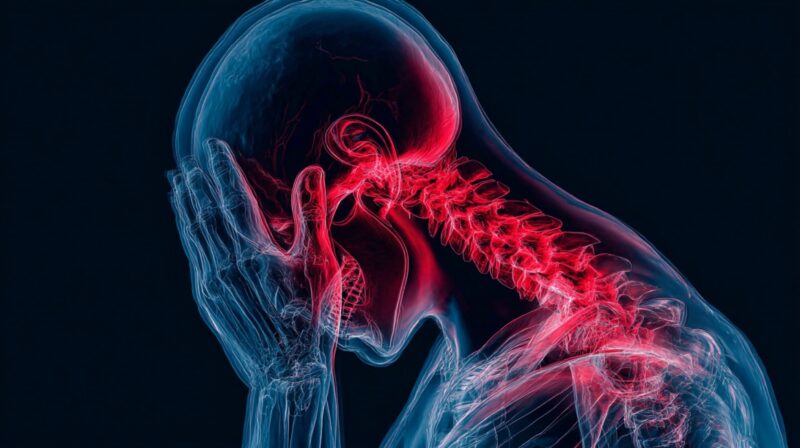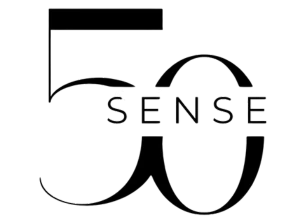
Share Post:
Stress interferes with sleep on both physical and psychological levels.
Many people lie awake at night, caught in a loop of tension and racing thoughts, unsure of what to do.
Muscle tension is one of the most common physical expressions of stress, and it plays a major role in disrupting rest.
Recognizing how muscle stiffness affects sleep quality can lead to real improvements.
Several techniques can help relax both mind and body for better rest.
Table of Contents
ToggleThe Physiology of Stress and Muscle Tension
Stress begins in the mind but rapidly affects the entire body. Once the brain detects a potential threat, it sends a signal to activate the sympathetic nervous system.
Stress hormones like cortisol and adrenaline are then released into the bloodstream, preparing the body for immediate action.
In modern daily life, threats tend to be psychological, deadlines, responsibilities, social pressures, but the body still reacts as though danger is physical and imminent.
The body doesn’t distinguish between an emotional threat and a physical one. Muscles automatically tense as part of the body’s instinctual defense mechanism.
While helpful in emergencies, this reaction becomes harmful when triggered repeatedly during everyday situations. Tension builds up over time, and specific areas tend to bear the brunt.

- Neck and shoulders: Tense shoulders often rise toward the ears, creating stiffness and aching pain.
- Jaw: Clenching or grinding teeth at night is a frequent response to unresolved stress.
- Lower back: Stress contributes to spinal compression and postural strain.
- Forehead and face: Furrowing the brow or squinting tightens facial muscles unconsciously.
Chronic stress keeps these muscles in a semi-contracted state throughout the day and night. The longer they remain tight, the more fatigue and discomfort accumulate.
Without conscious effort to release this stored energy, muscles become locked in a constant alert mode. Mental restlessness adds fuel to the fire, creating an internal environment that feels both physically and mentally constricted.
Muscle tension and stress operate as a closed feedback loop. Physical tightness sends signals to the brain that something is wrong, reinforcing a sense of anxiety or urgency.
As a result, even when external stressors are removed, the body remains on high alert. Relaxation becomes difficult, and sleep becomes delayed or disrupted.
Fun fact: Did you know that the quality of your sleep can significantly impact how your skin ages over time?
The Impact of Muscle Tension on Sleep Quality
Trying to fall asleep with a stiff, contracted body and a hyperactive mind creates instant friction. Physical discomfort clashes with the desire for stillness.
Muscle tension makes it more difficult to transition into a restful state. Many people find themselves tossing and turning, shifting positions repeatedly in search of ease that never quite arrives.
As the body remains on high alert, the mind struggles to wind down, caught in a loop of overthinking and overreacting.
Tension keeps sending signals to the nervous system that alertness is needed, sabotaging efforts to relax. Sleep becomes delayed or fragmented.
In many cases, lying down in bed only intensifies awareness of tight muscles, making relaxation feel impossible.
- Frequent repositioning due to stiffness in the back, neck, or jaw
- Increased heart rate caused by physiological arousal
- Mental racing that mirrors the body’s restlessness
- Physical discomfort that never fully fades, even after extended time in bed
Even when sleep finally arrives, muscle tightness reduces quality. Rest remains shallow, with fewer chances to reach restorative stages like slow-wave and REM sleep.

Muscle contractions throughout the night may lead to brief awakenings, teeth grinding, or clenched fists. These disturbances often go unnoticed during the night but reveal themselves in how drained one feels in the morning.
- Waking up still tired, even after 7–9 hours in bed
- Stiffness or soreness upon rising
- Interrupted sleep, marked by awareness of multiple awakenings
- Headaches or jaw pain, especially when clenching persists overnight
A single night of poor sleep already elevates cortisol levels. When this becomes habitual, a self-reinforcing loop sets in. Elevated stress makes muscles more prone to tightness. That tension, in turn, keeps disrupting rest.
The longer it continues, the harder it becomes to reset the body’s natural rhythms. Attention must be paid to both body cues and mental stressors to interrupt this cycle and restore sleep quality.
Breaking the cycle requires a shift in habits. Starting small, with intentional body-focused practices before bed, often yields the best results.
Recognizing patterns of physical restlessness and targeting them through structured relaxation techniques brings relief not only to the muscles but to the mind as well.
Stress-Related Conditions Worsening Sleep
Anxiety and chronic stress often trigger a physiological pattern known as muscle hyperarousal. In this heightened state, the body remains tightly coiled even during periods meant for rest. The nervous system resists any cues to calm down.
Emotional pressure manifests physically, causing symptoms that make relaxation nearly impossible.
- Shallow, uneven breathing
- Tightness in the jaw, shoulders, or chest
- Persistent fidgeting or restlessness
- Elevated heart rate and body temperature
Nighttime becomes a battleground where tension refuses to ease, and the mind races long after the day ends. As muscles stay contracted, even minor discomfort can feel amplified.
A single night of disturbed rest may seem manageable, but repetition creates a downward spiral.
Poor sleep has consequences that ripple through both physical and mental health. Ongoing tension worsens existing conditions and introduces new risks.

- Sleep apnea can intensify when muscles in the throat remain rigid, leading to more frequent breathing disruptions
- Depression becomes more likely as restorative sleep dwindles
- Chronic fatigue emerges, even after extended periods in bed
- Memory, focus, and decision-making abilities decline due to poor brain recovery at night
Lack of deep sleep feeds anxiety, and anxiety prolongs muscle hyperarousal. Each night lost to restlessness increases the body’s stress load the next day. Without attention, the cycle tightens its grip and becomes harder to escape.
Improvement doesn’t come only through managing anxious thoughts. Relief must also target physical symptoms stored in the muscles.
Relaxation must reach the body, not just the mind. Lasting change requires intentional effort to address both sides of the equation: psychological tension and muscular resistance.
For physical tension related to chronic stress, massage therapy, physical therapy, or guided relaxation coaching may provide relief. Kings Cross osteopaths, for example, offer comprehensive osteopathic care aimed at addressing musculoskeletal imbalances that may be exacerbating sleep difficulties.
Progressive Muscle Relaxation (PMR)
Progressive Muscle Relaxation (PMR) is a well-supported method for reducing physical tension and encouraging rest.
It works by systematically targeting muscle groups across the body. Each group is tensed intentionally, held for a few seconds, and then released. That contrast helps the nervous system shift away from a stress response.
As muscles let go, the brain interprets the release as a signal that it’s finally time to relax.
PMR typically follows a consistent pattern, starting at the bottom of the body and moving upward.
The process usually begins with the toes and feet and finishes with the scalp and facial muscles. Practicing this regularly trains the body to recognize and interrupt its own tension patterns.
As you move through each section, calm breathing is used to support the effect. Some find it helpful to pair the practice with soothing mental imagery, such as imagining each body part becoming warm and heavy.
- Toes and feet
- Calves
- Thighs
- Glutes
- Abdomen
- Chest
- Hands and forearms
- Upper arms and shoulders
- Neck
- Jaw
- Eyes and forehead
- Scalp
Each group is tensed for 5 to 7 seconds and then slowly released while inhaling and exhaling in sync. Practicing in a quiet space improves focus.
Performing it while lying down before bed can significantly enhance its effectiveness in preparing for sleep.
The benefits extend well past just physical relaxation. PMR helps lower heart rate, stabilize breathing patterns, and reduce anxiety symptoms.
People dealing with racing thoughts often find mental clarity during or after the session. Sleep becomes easier to fall into and is often less disrupted throughout the night.

- Decreased muscle tightness
- Lowered cortisol levels
- Improved onset of sleep
- Longer periods of uninterrupted rest
- Reduced symptoms of generalized anxiety disorder
- Improved mood and emotional regulation
The method is free to use, easy to learn, and highly adaptable. Many therapists and sleep clinics recommend it as a core part of stress and sleep recovery plans.
When to Seek Help
Ongoing muscle-related sleep problems may indicate an issue needing professional support. Frequent tossing and turning, morning fatigue despite long hours in bed, or waking up with clenched jaws or stiff shoulders are all red flags.
When stress relief techniques don’t lead to improvement, it’s time to consider further evaluation.
Medical professionals can perform sleep studies to identify specific disruptions such as apnea.
Therapists trained in anxiety management can help address psychological triggers that contribute to muscle tightness.
Tools like CPAP machines can also help if sleep apnea is involved.
Ignoring persistent problems leads to worsening health and declining quality of life. Professional guidance brings clarity, strategy, and support to those stuck in cycles of tension and poor rest.
Final Thoughts
Muscle tension plays a major role in sleep disruption, especially in individuals dealing with chronic stress. What begins as mental strain soon turns physical, with the body caught in a pattern of constant readiness. Left unaddressed, tension compromises both falling and staying asleep.
Progressive Muscle Relaxation and similar techniques offer a direct way to interrupt the stress-sleep cycle. Through regular practice and self-awareness, better rest becomes possible. Committing to small, daily stress relief actions can transform nights into periods of genuine restoration.
Related Posts:
- How Poor Sleep Affects Estrogen Levels and Skin Health
- How Sleep Quality Affects Your Skin’s Aging Process
- How Smoking Can Lead to Hair Loss and What You Can…
- Can You Leave Olaplex 3 On Overnight? You Might Be Suprised…
- How Stress Affects Your Hair and Skin Health: What…
- The Difference Between Therapy and Coaching: What…








